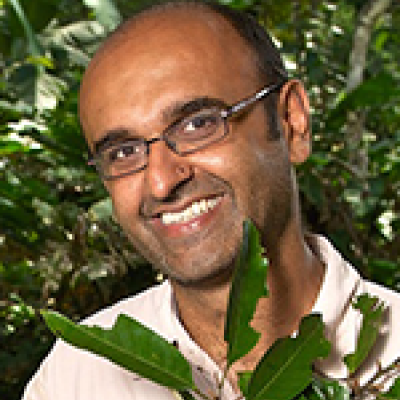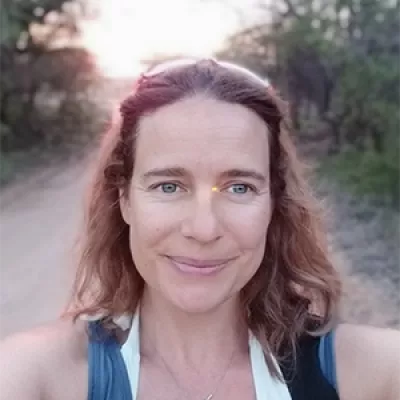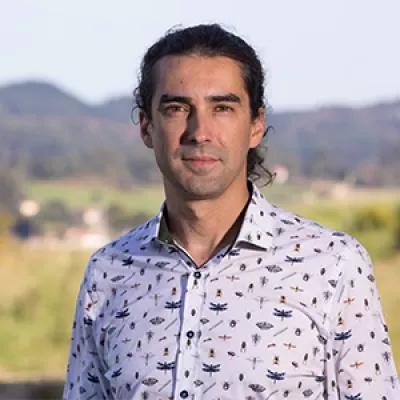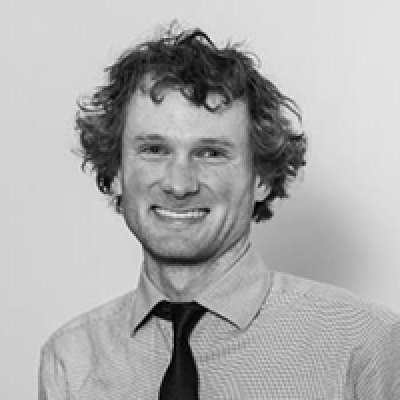About the BCNR course
Learning outcomes
The MSc in Biodiversity, Conservation, and Nature Recovery (BCNR) is a full-time, one year course that provides students with the knowledge and skills to think adaptively, creatively, and critically at the intersection of biodiversity science, policy and action. Based in the School of Geography and the Environment, BCNR also benefits from close connections to the Leverhulme Centre for Nature Recovery.
Through study of theory from the natural and social sciences, illustrated with case-studies, and using a forward-thinking approach, students will be equipped with the knowledge and skills to think critically about the conservation of biodiversity in the past, present and future.
The course teaching and assessment is structured to ensure that students develop the knowledge and professional skills that are likely to benefit them when applying for jobs in the field of conservation after graduation. Teaching approaches, including active and outdoor learning, and the modes of assessment, including oral and written tasks, have been designed to provide a more inclusive and productive learning environment. Upon completion of BCNR, students will be able to:
- Identify and describe the drivers of biodiversity loss and the differing motivations for biodiversity conservation and nature recovery.
- Design and appraise conservation and restoration interventions to respond to a range of biodiversity challenges, drawing from diverse perspectives and case studies around the world.
- Design and conduct an independent research project using appropriate research philosophies, methodologies, and protocols.
- Critique and synthesise theory from the natural and social sciences to formulate and defend your position on a range of controversial issues associated with biodiversity conservation and nature recovery.
- Explain and debate different aspects of biodiversity science, conservation, and restoration ecology through written and oral media and for a variety of audiences, drawing on the appropriate literature and ethical practices to support your positions.
- Recognise, value, and respond sensitively to a diversity of perspectives needed to address the challenges related to scoping and implementing biodiversity conservation and nature recovery solutions.
Course description
The MSc course comprises:
- Eight core modules which are assessed with a variety of synoptic coursework tasks including written tasks, oral presentations, and a viva.
- Two electives which provide an opportunity for small-group learning with discussion and debate between academic staff and students.
- An original and independent research project.
- Professional and research skills training.
- Seminars hosted by the Leverhulme Centre for Nature Recovery, the Biodiversity research cluster, and other research clusters in the School of Geography and the Environment.
- Workshops, reading groups and study days.
- Field trips.
An outline timetable for the course is illustrated in the table below. The following description applies to the MSc BCM 2023/24 academic year. Applicants to the MSc in BCNR in future years should be aware that the general structure of the course will be similar but specific details of the course changes from year to year as we seek to keep the course up to date with developments in the field and as we accommodate new opportunities arising from staff arrivals or departures. Core modules and elective modules for BCNR will be taught in the first two terms from 2025/26, with research projects undertaken in the final term.
BCM MSc - Outline Schedule 2023/24 | ||
Michaelmas Term | Hilary Term | Trinity Term |
Conservation Biogeography | Conservation Landscapes | Research Project |
Global Change and the Biosphere | Conservation Seascapes | Nature symposium (LCNR) |
Ecosystem Restoration | Economics and the Environment | |
Conservation and Society | Conservation Governance | |
Professional and Research Skills | Professional and Research Skills | |
Workshops and fieldtrips | Workshops and fieldtrips | |
BCNR Student Symposium | BCNR Research Symposium | |
Nature Symposium (LCNR) | Nature Symposium (LCNR) | |
Teaching methods and contact hours
Teaching is concentrated in the first two terms (October – March). The course is taught through a combination of lectures for core modules, small group teaching for elective courses, workshops, reading groups and discussion sessions, fieldtrips and study days. BCNR is a full-time programme of study, comprised of approximately, 12-15 hours of formal contact time. For core modules, there are normally 8-10 hours of lectures per week, delivered through two-hour lecture sessions. Electives are normally delivered in 4-6 sessions across the term, each lasting 90 minutes to 2 hours. Individual extended reading is an important part of the course programme and up to 3 hours of reading may be set in preparation for each two-hour class. In weeks with fieldtrips or study days, the number of contact hours will be higher.
Core modules
A summary description of each core module run in 2023/24 is given below. Reading lists are circulated a week to 10 days ahead of the first class.
Terrestrial Conservation Biogeography
Module Leader: Dr Nicola Stevens
The module will equip you with a critical understanding of patterns, origins and threats of terrestrial biodiversity and approaches to its conservation. For this, the module will use the lens of conservation biogeography: the application of biogeographical principles, theories, and approaches, to problems concerning the conservation of biodiversity. We will begin the module with a dive into what we know and don’t know about biodiversity and conservation biogeography. We will then look at baselines, philosophies and spatial approaches in biodiversity science and understand how this shapes our understanding, conservation and restoration of biodiversity nowadays. Then, we will investigate the drivers of biodiversity loss and mechanisms of extinction – by taking a deep dive into habitat loss and fragmentation and into restoration approaches to mitigate threats. The last session will culminate in an exploration and critical discussion of island biogeography. Here we will learn about the immediate application and relevance of this key area of conservation biogeography to today’s biodiversity conservation challenges and explore the tools and applications that can be harnessed to solve conservation’s most pressing problems. The module will be taught through a mixture of lectures, critical discussions, and interactive exercises.
Global Change and the Biosphere [shared with MSc/MPhil in ECM]
Module Leader: Prof Yadvinder Malhi
This module examines the roles played by the biosphere in global and local environmental change, both in how it is affected by environmental change and in how changes in the biosphere can affect global change. It starts with a macro-scale view of the concept of the Anthropocene, global biosphere function and the global impact of humanity, putting contemporary environmental change into wider context. It then explores how ecologists explore the responses of the biosphere to global change through field studies, satellite remote sensing and modelling, focussing on examples from contemporary research in tropical forest and coral reef biomes. The module concludes by exploring nature-based solutions to climate change mitigation and adaptation and the potential for large scale nature recovery. The module is complemented by a field trip to Wytham Woods and potentially other local sites.
Conservation Landscapes
Module Leader: Dr Richard Grenyer
How can we choose what to do? Or, in more conservation-specific terms, "how can we choose what/where/how to conserve?" This module seeks to explore current and future problems in conservation decision making, with reference to the underpinning techniques and scientific understanding. It begins with the history and controversy over how to measure biodiversity, and whether to divide the world into areas of differing conservation importance, either in the form of protected areas, priority regions or multi-use landscapes. It then introduces key planning principles and tools that have shaped conservation action and specifically networks of Protected Areas at multiple scales. Grounded in case study applications of prioritisation, the module continues with lectures on evidence-based conservation and the related question of "what works?" and concludes on the challenges of extending conservation planning to deal with food security, demography and the social. Through participation in this module, you will understand how spatial responses to biodiversity conservation operate across scales and governance modes and have contributed to the institutional make-up of contemporary conservation.
Ecosystem Restoration
Module Leader: Dr David Moreno Mateos
Conservation is a key tool to prevent further biodiversity loss, and restoration is essential to reverse that loss. Ecosystem restoration is one of the largest challenges humanity faces after an entire history of degradation. Restoring ecosystem requires a deep understanding of their structure, functioning, and long-term dynamics, but also about the history a place, its interaction with people, and its potential futures. In this module we will explore the long-term (centuries or millennia) process of ecosystem recovery and how the use of genomics, remote sensing, or complex system theory is revolutionizing the field. We will then learn discuss how these advances can be applied to practice and policy, locally and globally, to critically analyse what worked and what did not work to envision more creative and holistic approaches for the future of the restoration challenge.
Conservation Governance
Module Leader: Dr Chloë Strevens
Early models of conservation governance have been transformed over recent decades, moving from predominantly centralised, regulatory 'command and control' mechanisms towards more inclusive and/or locally grounded approaches. This module will explore conservation governance across scales, from the political arenas of international environmental negotiations and state governments through to community-based conservation and individual conservation behaviours.
Conservation and Society
Module Leader: Prof Jamie Lorimer
This module explores the contributions of critical social theory to the understanding of some of the cultural, historical and political aspects of nature and efforts to conserve it. It aims to demonstrate the importance of conceiving conservation as a social and political practice, questioning prevalent understandings of science as an objective arbiter of conservation policy. The module will make reference to a range of 'hot' topics in contemporary conservation practice. This module will equip you with a range of conceptual resources to help you think critically about conservation. It will develop your ability to reflect on how social theory might improve conservation science, policy and practice. On conclusion of the module you should be able to articulate these ideas with reference to a range of 'hot' topics in contemporary conservation practice.
Economics and the Environment
Module Leader: Dr Michael Clark
This module offers an introduction to environmental economics, and how it pertains to biodiversity and conservation. The module will start by covering core economic concepts, such as supply and demand, management of the commons, market failures, and valuation of biodiversity. It will then explore the role of the current economic system in biodiversity loss and biodiversity conservation, applying economic concepts to a series of case studies. Through participation in the module, you will explore economic causes and potential solutions to biodiversity loss and conservation.
Conservation Seascapes
Module Leader: Dr Lisa Wedding
Landscape ecology is the study of the interaction between spatial heterogeneity and ecological processes, with an emphasis on scale-dependence. By observing terrestrial and marine systems through the lens of landscape ecology, scientists may be capable of addressing conservation planning challenges and uncovering the complex links between ecological patterns and processes. This module will introduce the history, theoretical underpinnings, and contemporary views in seascape ecology and conservation. Seascape ecology aims to understand the patterns and processes governing the distribution of marine species, their associated habitats, and the relationships between living organisms, human communities, and the marine environment. The seascape ecology curriculum will explore the recent theoretical and technological advances that have been made in quantifying and mapping dynamic, biophysical aspects of marine ecosystems. In addition, we will also consider how seascape ecology can incorporate diverse human cultural patterns and processes as critical components within the ecological system, with an emphasis on valuing multiple perspectives within marine ecology and conservation.
Elective Modules
Elective Modules offer a tutorial-style teaching and discussion environment within smaller groups, based on a suite of contemporary research themes that reflect the specific interests of core faculty and visiting research associates. They involve eight hours of instruction that may be organised in different formats. Each student has the opportunity to identify elective modules of particular interest, though there is a selection process for these electives through committee at the start of term. As such, the teaching aim is to foster discussion and debate between academic staff and students to identify and explore theory, methods and practice in an academic space that encourages a critical dialogue.
Fuller details of our current range of electives are available from the Course Co-ordinator. The portfolio of electives on offer may change from year to year.
The following electives were run in 2023/24:
| Elective Title | Module Leader / Teaching Staff |
|---|---|
| Climate Change, Communication and the Media | James Painter |
| Complexity Sciences for Environmental Policy | Peter Barbrook-Johnson |
| Ecological Economics and Degrowth: Transformative Pathways to Sustainability | Erik Gomez-Baggethun |
| Environmental Education | Bill Finnegan |
| Flood Risk Management | Edmund Penning-Rowsell |
| Global Environmental Change and Food Systems | Monika Zurek and Saher Hasnain |
| Global Survey of Climate Litigation | Benjamin Franta and Rupert Stuart Smith |
| International Environmental Law | Catherine Mackenzie |
| Nature Recovery – Ecology, Governance and Wellbeing | Cecilia Dahlsjo and Katrin Wilhelm |
| Remote Sensing of the Environment | Cristian Rossi |
| Valuing Nature: Ethical Frameworks and Policy Implications | Tim Howles |
| Water, Wastewater and Sludge Treatment in the Urban Context | David Thomas |
| Development, Environment and Health | Katrina Charles |
| Digital Ecologies | Jonny Turnbull |
| Energy and the Environment | Nick Banks and Sam Hampton |
| Environmental Governance and Conservation: ASEAN Case Study | Mari Mulyani |
| Global Dimensions on Resilience and Sustainability: Risk, Capital and Policy | Nicola Ranger, Mattias Wildemeersch and Michael Obersteiner |
| Human-Wildlife Conflict and Coexistence: Theory and Practice | Alex Zimmerman |
| Implementation Strategy for Climate Initiatives | Abrar Chaudhury |
| Implementing the Water Action Agenda from the UN Ministers Conference 2023 | Michael Rouse and Alex Money |
| International Biodiversity Conservation Law | Catherine Mackenzie |
| Land Tenure and Sustainability in Africa | Festus Asaaga |
| Marine Ecosystems, their Conservation and Management | Gwilym Rowlands and Simon Pittman |
| Strategy for Earth | Giulio Boccaletti |
| Topics in Climate Change Economics and Policy | Sam Fankhauser |
| Transboundary Conservation | Mohammad Farhadinia |
| Transforming Organisations: A Change Agent's Toolkit | David Scrymgour |
| Urban Infrastructure Futures | Anna Plyushteva |
| Water Justice | Martina Korzenevica-Proud and Catherine Grasham |
Workshops, symposia and reading groups
The course includes a set of research skills clinics, workshops, symposia and reading groups that provide opportunities for interactive, small group and in-depth explorations of themes in biodiversity conservation and nature recovery.
In 2023/24 we ran the following:
- Two class symposia, one in each of the first two terms, where students presented their work to their peers to gather feedback and practice their presentation skills.
- A CITES role-play workshop to explore the decision-making procedures and politics of a standing committee.
- A research ethics workshop providing baseline training in research ethics for MSc students working in both the social and physical sciences.
- Weekly sessions on professional and research skills including academic reading, writing, and public speaking, and introductions to conservation research methods.
- Students must attend the weekly Leverhulme Centre for Nature Recovery (LCNR) Nature Symposiums and are also encouraged to attend seminars hosted by other research clusters in SoGE.
Residential field trips
We run two residential field trips each year. Attendance on these is mandatory and the cost of attendance is covered in your fees.
Induction field course: Isle of Purbeck and the New Forest National Park, Dorset
Held one week before the beginning of the first term, the aims of this induction fieldtrip are:
- To get to know each other and chat about our respective interests;
- To introduce the course ethos and philosophy and;
- To visit a set of sites that illustrate conservation in England and the interactions between its landscapes, conservation actors and institutions over time.
A residential field course to Tenerife, Spain in the Easter vacation
Coming at the end of the taught component of the course this trip aims to consolidate and extend learning on the key themes covered in the course. For example:
- Factors determining the distribution and ecologies of species over space and time;
- The role of baselines in shaping conservation science and policy;
- Conservation governance across scales and institutions and;
- Techniques for engaging diverse publics in conservation action.
Transferable skills training
Integrated into the course are various activities and exercises designed to help you develop the professional skills and competencies to succeed in the workplace. These include popular and executive science writing, oral communication, negotiating and lobbying, interviewing, writing grant proposals, and basic project management. In addition, the University's IT and Library services offer a full range of IT and information skill courses.
Core Staff
Please note: The actual course content may vary from the information provided online and should therefore be taken to be indicative rather than tightly prescriptive.













